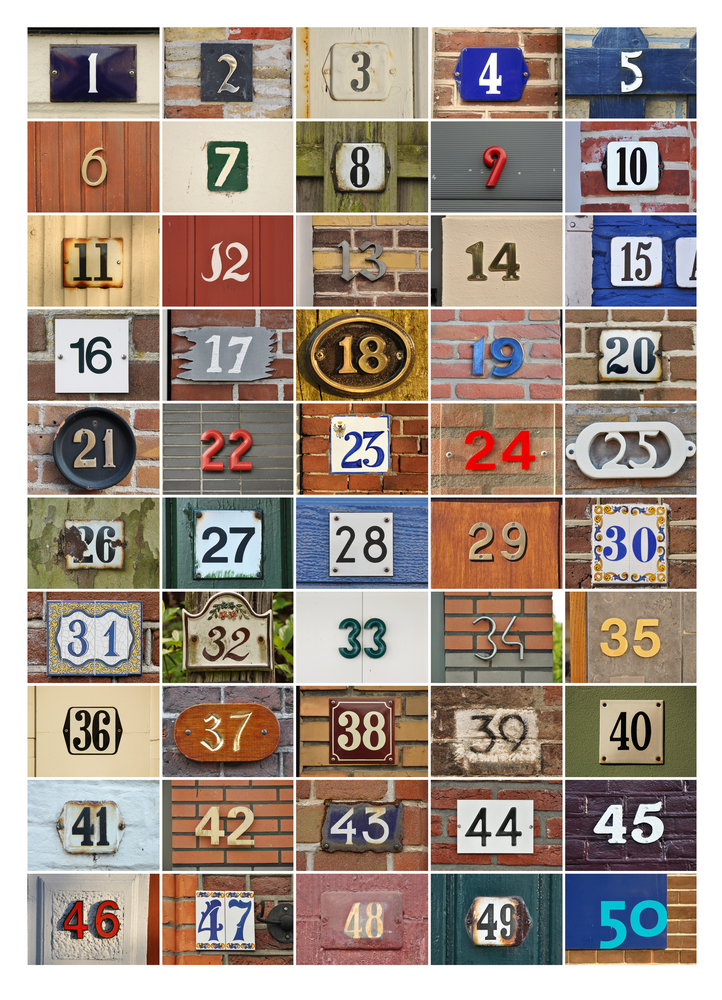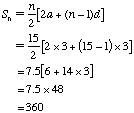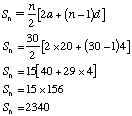 An arithmetic sequence or progression, is a sequence where each term is calculated by adding a fixed amount to the previous term.
An arithmetic sequence or progression, is a sequence where each term is calculated by adding a fixed amount to the previous term.
Arithmetic Sequences
This fixed amount is called the common difference, d. It can be positive or negative.
The common difference can be calculated by subtracting a term from the one following it.
e.g. Common difference = t n+1 − t n
The first term of an arithmetic sequence is shown by the variable a.
|
Arithmetic Sequence
|
First term, a
|
Common difference, d
|
|
2, 6, 10, 14, ...
|
2
|
6 − 2 = 4 |
|
20, 14, 8, 2, ...
|
20
|
14 − 20 = -6
8 − 14 = -6 etc. |
General Term, tn
An arithmetic sequence can be written:
|
First term
|
Second term
|
Third term
|
Fourth term
|
General term (n th term)
|
|
|
t 1
|
t 2
|
t 3
|
t 4
|
...
|
tn
|
|
a
|
a + d
|
a + 2d
|
a + 3d
|
...
|
a + (n − 1)d
|
| Example 1 |
What is the common difference of the arithmetic sequence: 3.5, 8.3, 13.1, 17.9, ... |
Common difference = t n+1 − t n Second term − first term = t2 − t1 = 8.3 − 3.5 = 4.8 Check: Third term − second term = 13.1 − 8.3 = 4.8 The common difference is 4.8 |
| Example 2 |
Find the 20th term of the arithmetic sequence: 3, 9, 15, 21, ... |
Common difference, d = 9 − 3 = 6 using tn = a + (n − 1)d t20 = 3 + (20 − 1)6 The 20th term is 117 |
| Example 3 | Which term of the sequence 12, 15, 18, .. would be equal to 54? |
Common difference, d = 3 Using tn = a + (n − 1)d 54 = 12 + (n − 1)3 The 15th term would be 54 |
| Example 4 |
The third term of an arithmetic sequence is 18 and the tenthterm is 74. Find the first term, a, and the common difference, d, and thus list the first four terms of the sequence. |
t 3 = 18 using tn = a + (n − 1)d 18 = a + (3 − 1)d 18 = a + 2d 56 = 7d ( subtracting) 18 = a + 2 x 8 The sequence is 2, 10, 18, 26, ... |
Arithmetic Series
If terms of an arithmetic sequence are added together an arithmetic series is formed.
2 + 4 + 6 + 8 is a finite arithmetic series
2 + 4 + 6 + 8 + ... is an infinte arithmetic series
To find the sum of the first n terms of an arithmetic sequence use the formula:
|
Sum of first n terms of arithmetic sequence d = common difference |
|
OR
An equivalent formula involving the last term, l
| Sum of first n terms of arithmetic sequence |
|
|
Example 1
|
What is the sum of the first 15 terms of the arithmetic sequence: 3, 6, 9, 12, ... |
|
||||||
|
Example 2
|
The first term of an arithmetic sequence is 5 and the last term is 250. The sum of this series is 1020. How many terms does it have? |
|
||||||
|
Example 3
|
An athlete does 20 press-ups on the first day of a training routine. On the second day she does 24 press-ups and on the third day 28 press-ups. If she follows this pattern for 30 days, how many press-up will she have done altogether? |
|


